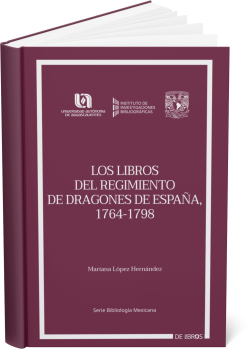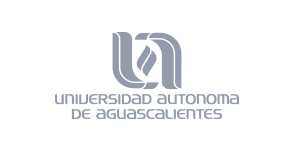THE BOOKS OF THE DRAGOON REGIMENT OF SPAIN, 1764-1798
Synopsis
This book is based on the assertions of the champions of New Hispanic Enlightenment, without limiting the reasons for their existence to European elements. On the contrary, it seeks to highlight the diversity of its foundation by focusing on two of the agents mentioned by the historian José Miranda. The first of them are the military men who arrived in New Spain in the mid-18th century under the command of General Villalba, "cosmopolitan" men who "fervently" embraced the renewing ideas of their time, contributed "to the spiritual progress of their homeland," and influenced "particularly the select circles of the colony" throughout the viceroyalty.
The second are books, objects that have been presented as instruments of idea dissemination in Mexico for almost eighty years through works such as those of Monelisa Lina Pérez Marchand, who in 1945 emphasized the importance of the book, especially the one prohibited by the Inquisition, in tracing the intellectual trajectory of New Spain in that century. Another example is the studies conducted by Pablo González Casanova, who in the 1980s indicated that in addition to circulating throughout the viceroyalty, "illustrated literature" "connected Mexicans with the most recent and revolutionary ideas from Europe." Recent research has not changed his perception regarding the book, which has allowed authors like Cristina Gómez to "discover the presence of the Enlightenment" in the book trade between Spain and New Spain, as well as in some private libraries of the viceroyalty.
The relationship between military personnel and books might seem inconspicuous; however, the construction of this binomial is possible through inquisitorial and military documents preserved in the General Archive of the Nation of Mexico (AGN). Among the former, we find petitions drafted by men of arms to the Tribunal of the Holy Office to bring their books into the viceroyalty, as well as complaints filed against them for possessing prohibited books. Among the latter, there are wills and inventories of goods where the books that came into the possession of these individuals are listed. Thus, these records allow for the characterization of some members of the New Spanish army as possessors of these objects.
Given this scenario, the initial objective of this book is to determine whether the military were, with respect to the book, agents of cultural change for the society of New Spain during the second half of the 18th century. Based on Miranda, a positive assessment is made through the instruction provided by their corporation, the nature of the set of titles they possessed, and the use they gave to the book. However, given the vast universe of sources, actors, and books, these pages focus on the members of the first dragoon regiment formed in New Spain, called de España. In this way, a sample consisting of 113 books distributed among ten subjects has been created, within a temporal limit ranging from 1764 to 1798, whose analysis corresponds to military history and the history of the book, historiographical currents that, given their development, have come to be closely linked.
This book has been divided into three chapters. In the first chapter, a journey from the 16th to the 18th century is developed, detailing the instrumentalization of the book and reading in the formation and military performance of Spain. In the second, the books of the Spanish Dragoon Regiment are analyzed, and the book is presented as a tool of sociability used by some dragoons during their military service. In the third, the dragon readers are removed from their military setting and placed in alternate spaces where they encounter readers from other groups who consume and produce written materials. Finally, since this work is based on the analysis of books, the author deemed it pertinent to include the corpus, hoping it would be useful for other research.

Downloads
Published
Series
Categories
License

This work is licensed under a Creative Commons Attribution-ShareAlike 4.0 International License.













